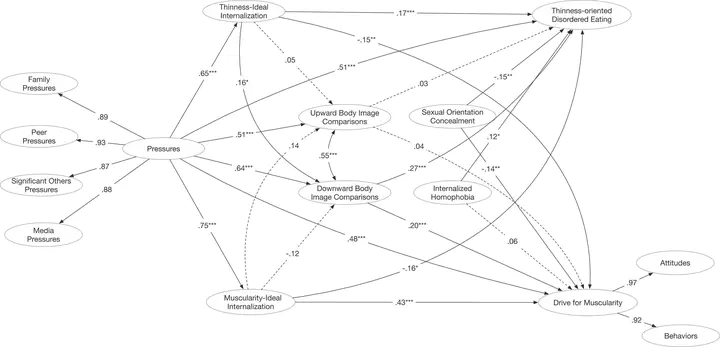Integrating the tripartite influence, minority stress, and social comparison theories to explain body image and disordered eating in Chinese sexual minority men and women

Abstract
Theories of eating pathology explain body image and disordered eating in diverse populations, including sexual minority (SM) individuals. Yet, previous efforts to extend theories of eating pathology to SM individuals have mostly focused on Western populations. The present study integrated the tripartite influence, minority stress, and social comparison models to explain variance in body image and disordered eating in Chinese SM men and women. Chinese self-identified SM adults (N = 1051; n = 519 men, n = 532 women) completed an online, cross-sectional study that assessed sociocultural influences (e.g., tripartite influence), minority stress, social comparisons, drive for muscularity, and disordered eating. Two integrated models were tested for men and women using structural equation modeling. Across both populations, sociocultural influences exerted the largest direct positive effects on body image and disordered eating. In men, only downward body image comparisons were uniquely related to outcomes. In women, higher upward body image comparisons were uniquely associated with higher drive for muscularity and higher downward body image comparisons were uniquely associated with higher thinness-oriented disordered eating. Minority stressors (e.g., sexual orientation concealment, internalized homophobia) were uniquely related to outcomes in men, not women. Findings extend existing theories of body image and disordered eating to Chinese SM populations.